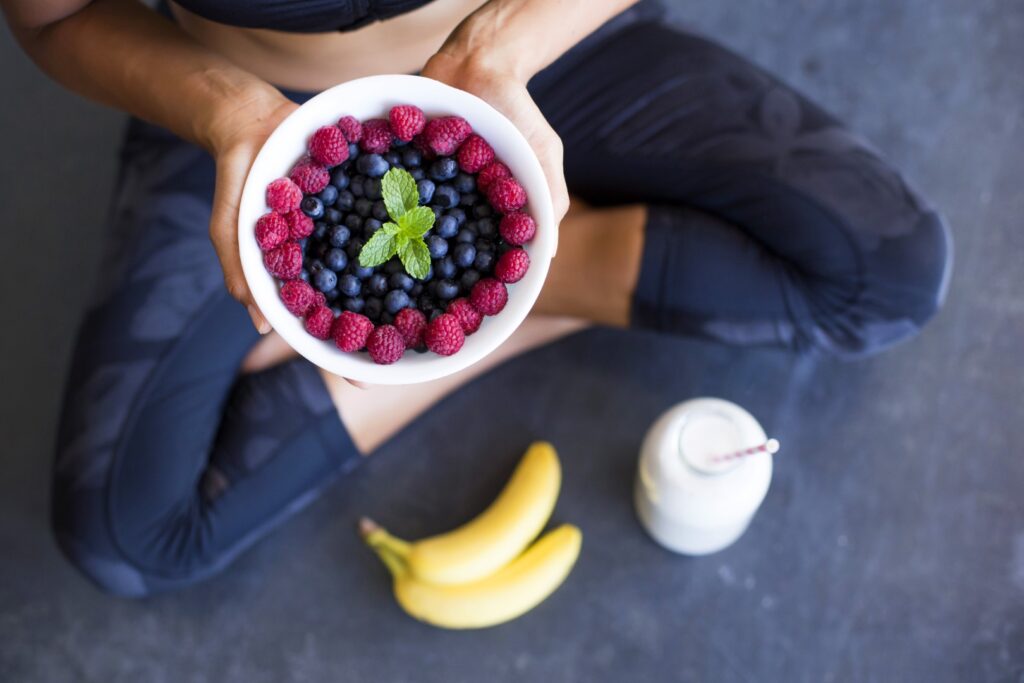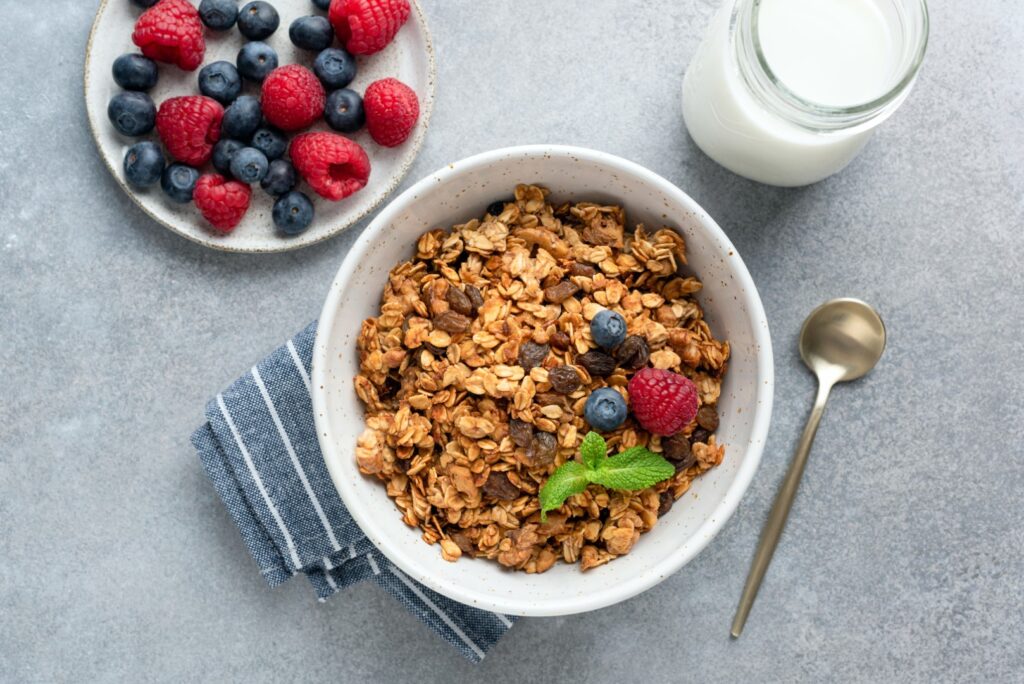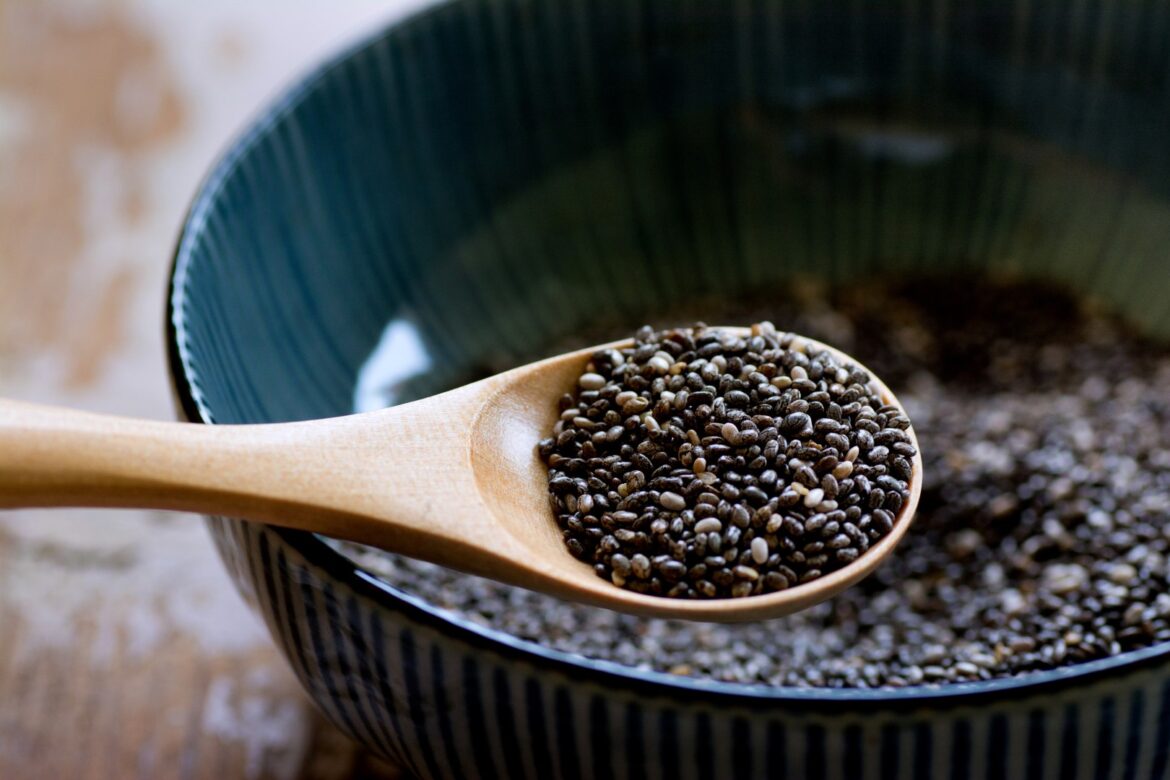Maintaining a healthy diet is an essential aspect of a healthy lifestyle. Eating a well-balanced diet consisting of whole, nutrient-dense foods can help to optimize health and reduce the risk of chronic diseases. Superfoods, or foods that are particularly rich in nutrients, are an excellent addition to any diet. In this blog, we will discuss the top 10 superfoods to add to your diet for optimal health.
Blueberries
Blueberries are a powerhouse of nutrition, packed with vitamins, minerals, and antioxidants. They are low in calories and high in fiber, making them an excellent choice for weight management. Blueberries are also known to promote heart health and reduce the risk of chronic diseases such as cancer and diabetes. They are a versatile food and can be enjoyed on their own, added to smoothies or yogurt, or used in baking.

Salmon
Salmon is a fatty fish that is rich in omega-3 fatty acids, which are essential for optimal health. Omega-3s are known to promote heart health, reduce inflammation, and improve brain function. Salmon is also a good source of protein and vitamins, making it an excellent addition to any diet. It can be grilled, baked, or poached and is a delicious and healthy choice for any meal.
Kale
Kale is a leafy green vegetable that is packed with nutrients. It is high in vitamins A, C, and K, as well as minerals such as calcium and iron. Kale is also rich in antioxidants, which can help to protect against chronic diseases. It is a versatile food and can be eaten raw in salads or cooked in soups, stews, or as a side dish.
Quinoa
Quinoa is a gluten-free, whole grain that is rich in protein, fiber, and vitamins. It is also a good source of minerals such as iron and magnesium. Quinoa is a versatile food that can be used in a variety of dishes, from salads to soups and even as a substitute for rice. It is an excellent choice for vegetarians and vegans as it provides essential amino acids that are often lacking in plant-based diets.
Avocado
Avocado is a delicious fruit that is packed with healthy fats, fiber, and vitamins. It is an excellent source of monounsaturated fats, which can help to reduce cholesterol levels and promote heart health. Avocados are also rich in potassium, which can help to regulate blood pressure. It can be used in a variety of dishes, from guacamole to salads, and is a delicious addition to any meal.
Chia Seeds
Chia seeds are small, black seeds that are packed with nutrients. They are high in fiber, protein, and omega-3 fatty acids, making them an excellent addition to any diet. Chia seeds are also a good source of minerals such as calcium, magnesium, and iron. They can be added to smoothies, yogurt, or oatmeal, or used as an egg substitute in baking.
Sweet Potatoes
Sweet potatoes are a nutritious root vegetable that is packed with vitamins and minerals. They are an excellent source of fiber, vitamins A and C, and potassium. Sweet potatoes are also rich in antioxidants, which can help to protect against chronic diseases. They can be baked, roasted, or mashed and are a delicious and healthy addition to any meal.
Broccoli
Broccoli is a cruciferous vegetable that is packed with nutrients. It is high in vitamins A, C, and K, as well as minerals such as calcium and iron. Broccoli is also rich in antioxidants, which can help to protect against chronic diseases. It can be eaten raw in salads or cooked in soups, stews, or as a side dish.
Berries
Berries, such as strawberries, raspberries, and blackberries, are packed with nutrients and antioxidants. They are low in calories and high in fiber, making them an excellent choice for weight management. Berries are also known to promote heart health, reduce inflammation, and improve brain function. They can be eaten on their own, added to smoothies, or used in baking.

Spinach
Spinach is a leafy green vegetable that is packed with nutrients. It is high in vitamins A, C, and K, as well as minerals such as iron and calcium. Spinach is also rich in antioxidants, which can help to protect against chronic diseases. It can be eaten raw in salads or cooked in soups, stews, or as a side dish.
Adding these 10 superfoods to your diet can help to optimize your health and reduce the risk of chronic diseases. It is essential to remember that a healthy diet is a balanced one, and no single food can provide all the necessary nutrients for optimal health. Incorporating a variety of nutrient-dense foods, including these superfoods, can help to ensure that you are getting all the essential vitamins, minerals, and antioxidants needed for a healthy body.
In conclusion, adding these superfoods to your diet can help to optimize your health and reduce the risk of chronic diseases. They are delicious, versatile, and easy to incorporate into your daily meals. By eating a variety of whole, nutrient-dense foods, you can ensure that your body is getting all the necessary nutrients for optimal health.


